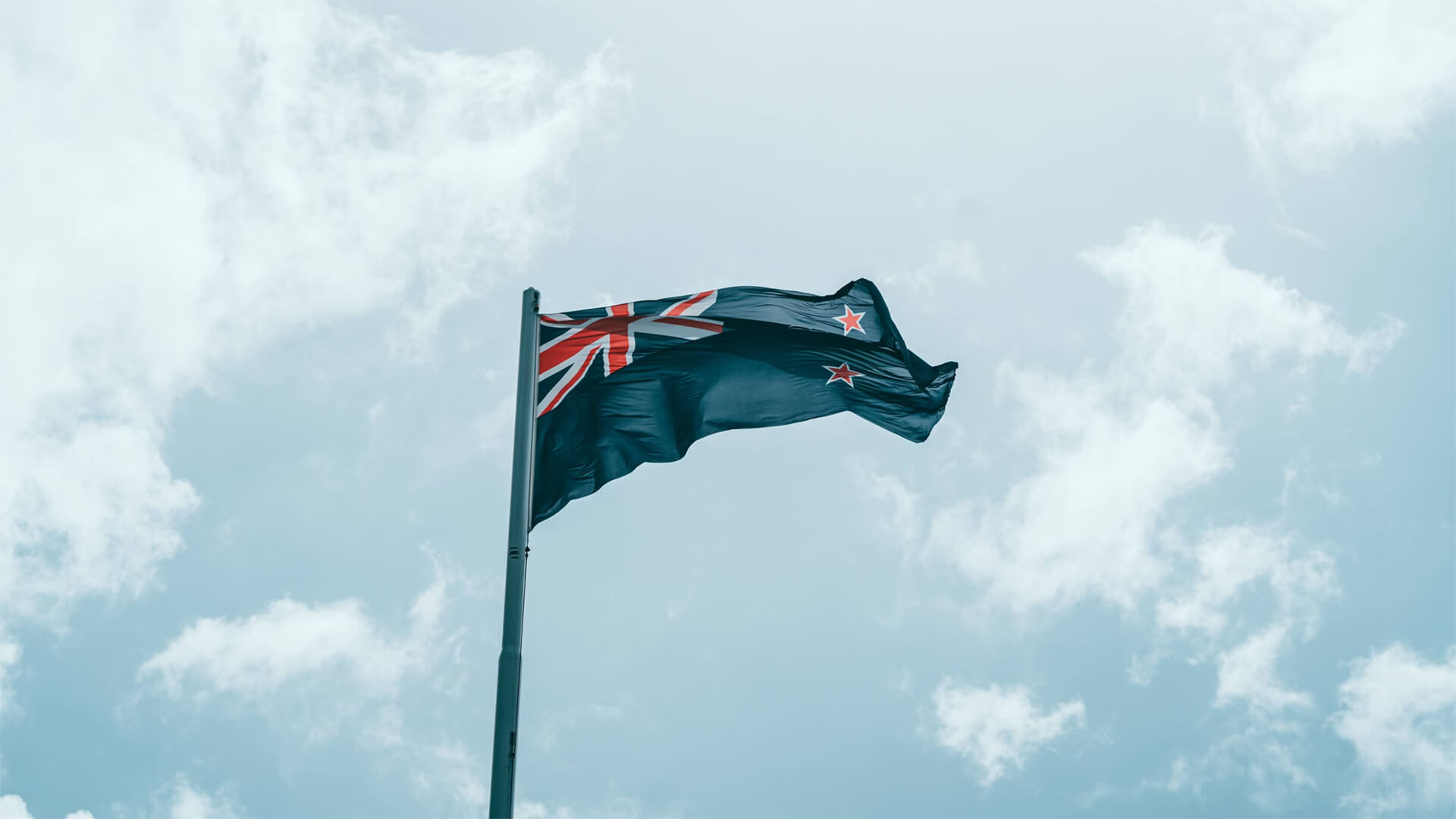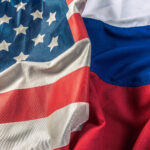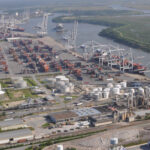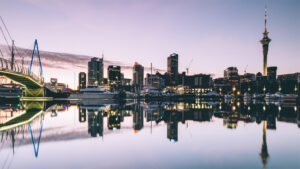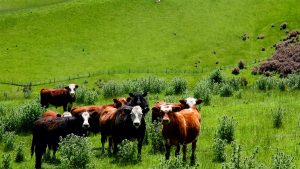In the past, we’ve chatted through the domestic issues facing New Zealand, so let’s discuss the economic future of the ~5 million Kiwis in the context of the shifting global landscape.
New Zealand has one of the world’s most efficient agricultural systems, specializing in dairy, sheep, and wine. Since these industries are some of the most protected, deglobalization will limit export access. How will they cope?
Well, New Zealand is no stranger to hard work, so let’s breakdown their options. They could lean into the NAFTA system and forge stronger ties with the US. Or they could shift production toward things like wheat and soy, which will be in high-demand. Both options would necessitate giving up something important to Kiwis. A third option, which could prove to be a strategic advantage, would be partnering with industrializing nations in Southeast Asia.
Regardless of that need to adapt, New Zealand is resilient and well-positioned to navigate these broader shifts. And they better figure it out, because where else am I supposed to vacation every year…
Here at Zeihan on Geopolitics, our chosen charity partner is MedShare. They provide emergency medical services to communities in need, with a very heavy emphasis on locations facing acute crises. Medshare operates right in the thick of it, so we can be sure that every cent of our donation is not simply going directly to where help is needed most, but our donations serve as a force multiplier for a system already in existence.
For those who would like to donate directly to MedShare or to learn more about their efforts, you can click this link.
Transcript
Hey, everybody. Peter Zeihan here. Coming to you from, Francis Glacier and Avalanche Peak. That is Middle Peak over there. And East Peak, because they ran out of names. Any who. Since I’m traveling around in New Zealand, naturally, folks here in New Zealand have been asking me about the future of their country.
So, here we go. What is New Zealand need to do to thrive? As globalization kicks in, it’s like, okay, so this is a tough one. New Zealand country of 5 million people, probably the most productive agricultural system in the world in terms of the the value of the outputs versus the cost of the inputs.
And in doing so, they have decided to specialize where they can hit hardest. And that is, dairy sheep and wine. Unfortunately, these are three of the most protected sectors in the world. So, I mean, they outcompete everybody on costs and pretty much everybody on quality. But as any one of the United States knows, trying to import the good wine from a place like France or Italy or Canada or Mexico or New Zealand, is next to impossible because of protection of systems and because we fractured our regulatory system.
So this is definitely a situation where the Kiwis need the Americans more than the other way around. Dairy is, if anything, even worse. That is arguably the most protected sector in the world, largely because you can’t really export liquid milk, because by the time it gets to wherever it needs to go, it’s gone off. So you have to turn it into value added cheese.
And I would argue the Kiwis, rival the French for the quality of their cheese. I mean, give me some key. Cranky. But getting it out of the country is next to impossible. You can only get it in, like, Singapore and Fiji. Cheap. It’s a little bit easier, but, you know, anyone with spare land can raise sheep.
So if you can make it for a little bit cheaper, who really cares? The bottom line is, if the Kiwis produce things at volume that they can’t possibly consume themselves. So they have to sell them abroad. And that requires an open market on a global basis. They got that with globalized fashion, but with globalization going away, that goes away.
And the only way to keep globalization going is to give the Americans enough things that they want, that they think it’s okay to carry the weight that’s necessary to make it all work. But the Americans don’t feel that way, and the Americans certainly don’t have a shortage of wine or sheep or cows. So there’s really not a lot that the Kiwis can bring to the table except security cooperation.
But this is the first of the allies during the Cold War that said that the US Navy had to stop coming because they might be carrying nuclear weapons. New Zealand’s been clean and green for a long time, and it’s now caught up in their political definition of themselves. So for New Zealand to do well in the future, it’s going to have to do one of two things.
Number one, it’s going to have to find some way to get included into the NAFTA system. That’s not as hard as it sounds. Australia has basically done it through a free trade agreement with the United States. But Australia has been arguably America’s most loyal ally going back 50 years. And so when the Bush administration, Bush administration, signed the trade deal with the Australians, it was seen as kind of a reward.
The Kiwis would have a lot of work ahead of them if they wanted to do something similar. Because while they have been an ally, this is a country of 5 million people. There’s only so much they can do, and they certainly don’t want to change their position on things like nukes. The second thing that they can do is change what they produce.
Volcanic soils. A lot of water rains almost every day in most of the country. Not today, thank God. Producing things that are going to be in shortage. The problem here is that the Kiwis will be pissing away a lot of their competitive advantage. You can grow anything here. You can grow anything well, here. But you can’t grow everything well, everywhere in the world.
And if you look at the products agriculturally that are likely to be in shortage on a global basis, at the very, very top of the list is wheat. Wheat is basically a weed. It will grow or nothing else. Does. And so in the world, as we’ve globalized and gotten access to better inputs and tractors and fuels and fertilizers and pesticides, all that wheat has been steadily pushed to the margin so that in most countries, the only places where wheat is now grown are places where only wheat can be grown.
And so if you disrupt globalization, if you disrupt the flow of those inputs a lot of the wheat that is produced in the world goes away. Well, for New Zealand, it’s no problem. But to go from raising dairy cattle and planting vineyards to produce wine, to producing the lowest cost, highest bulk crop that humans have wheat, it would be quite a drop.
So regardless of what happens, the Kiwis need to be prepared for changing agricultural markets. And while I I’ve kind of laid out the the broad spectrum or the broad sketch of how things are going to go, it’s a big world. It’s not I’m going to all going to globalize at the same time. And we will absolutely lose some commodities before others.
So, for example, if Brazil is part of the first tranche of countries to fall apart, we’re gonna have a global soy shortage. The Kiwis could grow that too.
The Kiwis are gonna have to show a degree of adaptability that most agricultural sectors can’t handle, that this is a country that 40 years ago hardly had any dairy cattle anyway, so they’ve done it before. They can do it again. The question is whether they’re doing it alone or with the United States.
We’re going to finish this one up from the tan. Our water waterfront. I have high confidence that the New Zealanders are going to come through this, with flying colors. A couple of reasons. Number one, they’ve done some version of this before. I mean, this isn’t the first economic transformation the country has gone have to go through because of changing geopolitical circumstances.
New Zealand used to be part of the British Empire, and its economy was sculpted to serve the needs of the empire. The Brits needed wool for their troops, and they needed a economic base in the region. And so the New Zealanders grew or raised sheep in the tens of millions. Basically, at one point we had more sheep here than we had in any other particular part of the world.
And when the, empire fell apart and the Commonwealth ceased to meet all that much, the Kiwis moved on and got into things like dairy and wine and the rest. And by the point of getting to like roughly the 2000, it was a fundamentally different place. And it’s a fundamentally different place now because they’ve chosen to specialize in the things that they can export to China in volume.
They can do it again. Second, there is a third option, besides going it alone or, buddying up with the United States, there is a middle ground and it involves southeast Asia. If you look at the countries of Indonesia and Vietnam and Myanmar, you know, you got three major countries there with young populations that are rapidly industrializing, that are partnered with countries like Malaysia and Thailand that are already further along the process with an older demographic.
And Singapore, which is a world leader in technology and finance, the Asean group in the southeast Asian grouping is going to be one of the major nodes of growth in the world. But there as this region, industrialized and urbanized, as it has absolutely no hope in its tropical territories of growing all the food they could possibly need for themselves, they’re going to have to import.
And the United States agricultural community is going to be part of that. But so is the New Zealand, because it’s just so much closer. And to be perfectly blunt, the Kiwis don’t have nearly the degree of state support outside of dairy that American farmers enjoy. And so they have to be much more aware of market trends, especially when they’re closer to home.
So New Zealand is one of the handful of countries that, for a mix of regions, I think is going to do great. It doesn’t mean things don’t need to change, but the Kiwis have shown time and time again that change is something that they can handle.

